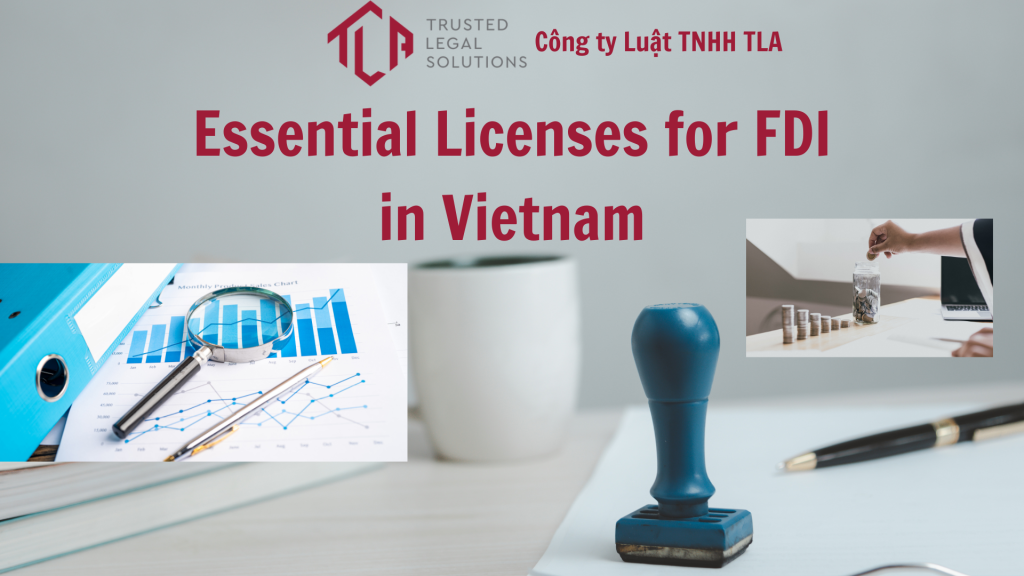Foreign Direct Investment (FDI) in Vietnam has risen owing to the country’s robust economic growth and favourable business environment. However, navigating the legal landscape can be challenging for foreign investors.

Overview of Vietnam’s FDI Legal Framework
Vietnam’s legal framework for FDI is primarily governed by the Law on Investment and the Law on Enterprises. These laws, along with various decrees and circulars, form the backbone of FDI regulations in the country.
Key laws and regulations include:
- Investment Law (2020)
- Enterprises Law (2020)
- Land Law 2013 (Land Law 2024 has been promulgated and will take effect from January 1, 2025)
- Various sector-specific regulations
- Recent updates: In 2020, Vietnam introduced significant changes to its investment laws, aiming to streamline procedures and create a more favorable environment for foreign investors.
Essential Legal Requirements for FDI in Vietnam
Investment Registration Certificate (IRC)
Step 1: Prepare the Application includes
- Investor Info: ID/passport or Business Registration Certificate.
- Project Info: Request letter, detailed project proposal (objectives, scale, investment, location, timeline).
- Financial Proof: Bank statements, financial reports, financial commitments.
- Location Docs: Lease agreements, land use rights certificates.
- Additional Docs: Depending on the project (e.g., environmental impact reports).
Step 2: Submit Application
Submit to the Department of Planning and Investment or the Industrial Park Management Board.
Processing time:
Within 15 days, the authority will issue the IRC if the application is complete (The processing time may vary depending on the status of the application.)
Capital Requirements
Vary by sector, with minimum capital requirements for certain industries (e.g., real estate, banking). Capital must be contributed within 90 days of ERC issuance. Proper documentation of capital transfers is required.
Sector-Specific Regulations
- Some sectors (e.g., education, finance) have additional requirements or restrictions.
- Foreign ownership limits in certain industries.
Land Use Rights and Property Ownership
- Foreign investors cannot own land but can lease land for up to 50 years (70 years in special cases).
- Foreign ownership is restricted in certain properties.
Compliance Checklist for Foreign Investors
Pre-investment Phase:
- Conduct market research and due diligence.
- Choose the appropriate investment structure.
- Ensure compliance with foreign ownership limits.Prepare documentation for the IRC.
Investment Phase:
- Obtain IRC and ERC.
- Open bank accounts (capital and operating).
- Register tax code and declare taxes.
- Obtain necessary sub-licenses or permits.
- Comply with the capital contribution timeline.
Post-investment Phase:
- Maintain proper accounting and financial records.
- Submit reports to authorities.
- Adhere to labor laws and social insurance regulations.
- Comply with environmental protection requirements.
- Renew licenses and permits as needed.
Understanding and following the legal requirements for FDI in Vietnam is crucial for foreign investors. If you have any further questions, please feel free to contact TLA Law Firm for timely assistance.
Contact Our Lawyers for Consultation:
TLA Law Firm is one of the leading law firms, with a team of experienced lawyers and staff in areas such as criminal law, civil law, corporate law, and family law. If you have any questions regarding this matter, please contact us for prompt assistance.
- Lawyer Vu Thi Phuong Thanh, Director of TLA Law Firm, Hanoi Bar Association
Email: vtpthanh@tlalaw.vn - Lawyer Tran My Le, Chairman of the Member Council, TLA Law Firm, Hanoi Bar Association
Email: tmle@tlalaw.vn
Address: 7th Floor, 6 Duong Dinh Nghe Street, Yen Hoa, Cau Giay, Hanoi
Website: https://tlalaw.vn/
Hotline: 0906246464
My Doan

